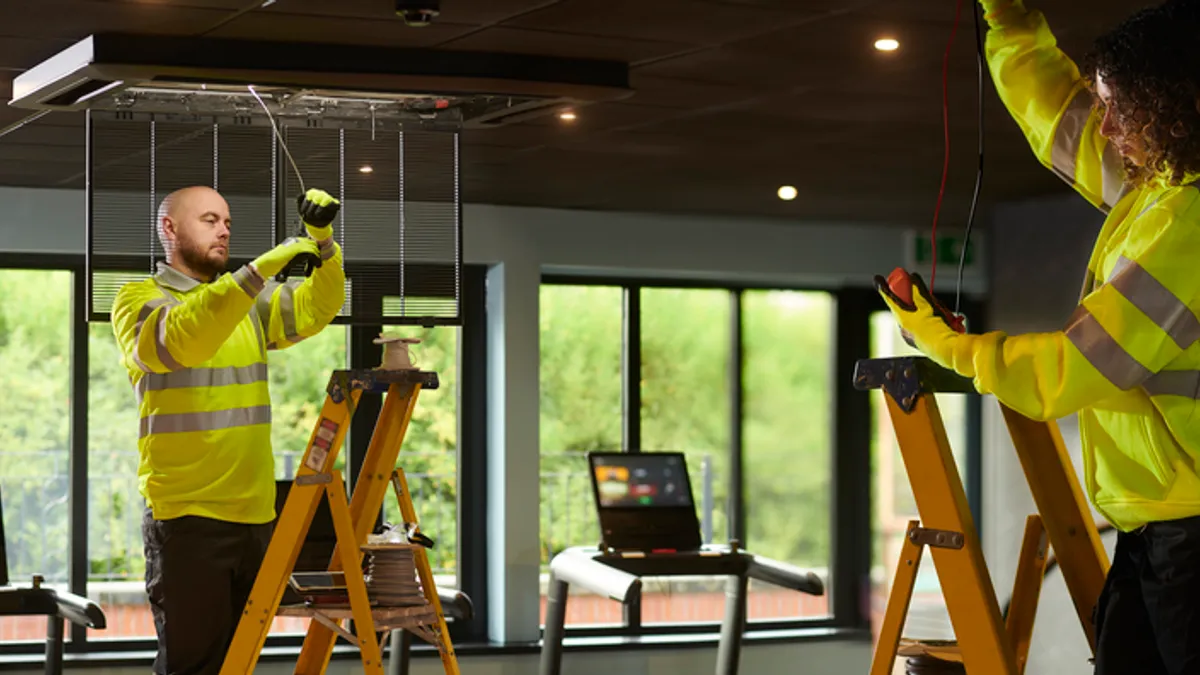Dive Brief:
- Accruent has launched a space optimization and planning software aimed at helping organizations reduce redundant systems and simplify workplace utilization data.
- Accruent Space Intelligence, or ASI, provides centralized insights from aggregated leasing, maintenance and workplace data, such as badge swipe and sensor information, to help companies analyze, plan and implement space utilization and cost reduction strategies, the company says.
- Underutilized office space is projected to exceed 1 billion square feet by the end of this decade, with vacancy rates projected to be 55% higher than pre-COVID-19 levels, Accruent said in a July 16 news release. ASI’s digital tools can help companies make informed, strategic decisions based on their existing portfolios to navigate this challenge, the company says.
Dive Insight:
The U.S. has 5.56 billion square feet of office space, with projections indicating that the total inventory will grow to over 5.68 billion square feet by the end of this decade, according to a 2023 report from Cushman & Wakefield. With the shift toward flexible work arrangements, however, only 4.61 billion square feet will be required to meet workforce needs, leading to a substantial amount of underutilized office space, the report says. As the market continues to shift toward hybrid work, only about a third of office leases scheduled to expire between 2020 and 2029 have done so, per the report.
In its recent 2024 midyear U.S. macro outlook, Cushman & Wakefield noted that it expects a decrease of 63 million square feet in the office sector this year, with a significant portion of sublease space expiring in 2028 or later. Meanwhile, the U.S. office sector hit a record vacancy rate of 20.1% in the second quarter — breaking the 20% barrier for the first time in history — Moody’s Analytics said in an analysis released earlier this month.
To accommodate these shifting workplace patterns, 72% of organizations use data for space utilization planning, according to JLL’s 2024 global occupancy planning benchmarking report. Accruent says its ASI software can reduce the time, resources and redundant systems that organizations and educational institutions often rely on for gathering and analyzing space utilization data.
ASI’s primary module provides “a single pane of glass analytics tool that simplifies complex utilization data by transforming it into actionable insights,” Accruent said in the release. This allows corporate real estate professionals to gain a holistic understanding of current space usage patterns, the company said. The software suite further provides forecasting capabilities that can act as a “virtual testing ground” to help teams enhance the accuracy of their planning by simulating departmental restacking and scenario comparisons, it noted.
The tools also integrate with Accruent’s EMS and FAMIS 360 products and other data streams to help facilitate accurate data-driven decision-making, Accruent said.
“Our goal is to enable our customers to take advantage of workplace data to maximize their current spaces to better align with today’s employee and student needs. This is a key contributor to cost savings at a time when corporations and universities are navigating budget constraints and optimizing their environments to changing space needs,” Richard Leurig, chief product and technology officer at Accruent, said in a statement.














